People
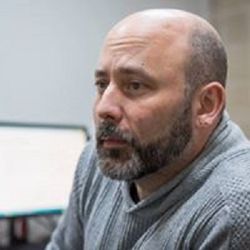
John Spencer
Principle InvestigatorJohn joined the School of Psychology at the UEA in 2015. Prior to arriving in the UK, he was a Professor at the University of Iowa and served as the founding Director of the DeLTA Center. He received a Sc.B. with Honors from Brown University in 1991 and a Ph.D. from Indiana University in 1998. He is the recipient of the 2003 Early Research Contributions Award from the Society for Research in Child Development, and the 2006 Robert L. Fantz Memorial Award from the American Psychological Foundation. His research has been continuously funded by the National Science Foundation and the National Institutes of Health since 2001. His research focuses on the development of executive function including working memory, attention, and inhibitory control. He is also a pioneer in the use of dynamical systems and dynamic neural field models for understanding cognition and action. Read more about John here

Larissa Samuelson
Principle InvestigatorLarissa Samuelson joined the School of Psychology as a professor in 2015. She received a BS with honors from Indiana University in 1993 and a joint Ph.D. in Psychology and Cognitive Science from Indiana University in 2000. From 2000-2015 she was in the Psychology Department at the University of Iowa. In 2010 Larissa received the American Psychological Association Distinguished Scientific Award for Early Career Contribution to Psychology in the area of developmental psychology. She has had continuous funding from the National Institutes of Health since 2004 and is an affiliate of the DeLTA Center. Her research examines processes of cognitive development with a focus on early word and category learning and incorporates neural network and dynamic neural field models. Read more about Larissa here
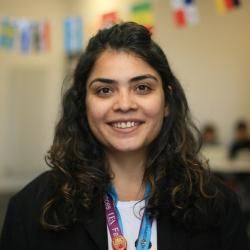
Prena Aneja
Principle InvestigatorPrerna is a Lecturer in Psychology at the University of East Anglia. She joined DDLabs as a PhD student under the supervision of Professor John Spencer in 2017. She holds a Master’s degree in Developmental Psychology from the University of Kent and has previously worked on education and development projects across both urban and rural India.
Her research and teaching focus on how social and cultural contexts shape cognitive development, particularly attention and visual working memory.
Prerna’s PhD examined whether looking behaviour measured in laboratory settings systematically relates to looking behaviour observed during caregiver–infant play in naturalistic environments in both rural India and the UK. To address this question, she combined screen-based and head-mounted mobile eye-tracking methods with machine learning analyses.
She is also passionate about promoting inclusivity in developmental psychology by engaging with families from diverse cultural backgrounds. Read more about Prerna here

Andrea Brancaccio
Senior Research AssociateAndrea Brancaccio is a Senior Research Associate at the University of East Anglia. Before joining UEA, he held research positions at the Italian National Council of Research and the University of Padua, where he also completed his PhD in Psychological Sciences. His research lies at the intersection of mathematical and cognitive psychology, focusing on mathematical and computational modelling of learning, language acquisition, reasoning, and problem-solving. He develops formal models and adaptive assessment tools to study knowledge and learning, combining theoretical frameworks with applied software development.

Noe Lam
Research AssociateNoel is a Research Associate at the University of East Anglia. Before coming to Norwich, she completed her master’s degree and PhD at the University of York, focusing on word learning and consolidation in adults and children aged 9 to 11. Her research interests lie in understanding the impact of individual differences, such as the variabilities in early language and cognitive abilities, on vocabulary learning in infants and children.
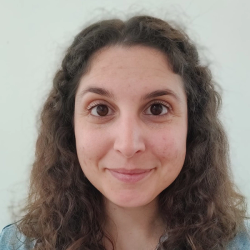
Niki Theofilogiannakou
Post Graduate ResearcherNiki’s background is in Speech and Language Therapy, and during her time as a paediatric SLT she developed a great interest in understanding the way language develops early in life. Niki completed her master’s degree in Language Development at UCL and is now continuing her research journey at UEA. Niki has started a PhD under the supervision of Professor Larissa Samuelson, focusing on the relationship between children’s cognitive processing and vocabulary development. Understanding children’s learning trajectories could not only allow us to make predictions about their development, but also create appropriate and highly effective interventions in order to address their needs and help them reach their full potential.

Stacey Stuart
Post Graduate ResearcherI have been working in DDLab since 2021 on various different projects. My prior work primarily focused on exploring the development of attentional processes in infants using behavioural measures (eye-tracking). My current PhD project, under the supervision of Prof John Spencer, utilises an Integrative Cognitive Neuroscience (ICN) approach to explore the development of visual working memory (VWM). We are continuing work on our existing Brain Study dataset that includes longitudinal brain imaging data from a child-friendly technique called fNIRS. Our aim is to explore this dataset to understand how children's brains support VWM across development - this is in parallel to my work exploring VWM with adults using fMRI. We will then use these combined findings to extend and refine our neurocomputational models of VWM. Taking this holistic ICN approach to understanding cognitive processes allows us to explicitly test existing hypotheses, generate new testable hypotheses, and provide mechanistic explanations of VWM at the level of the brain AND behaviour. Why is this important? We know that early deficits in VWM are associated with later difficulties in executive functioning, attention, and learning so understanding the neural basis and mechanisms of VWM (in adults and children) will help us to move toward informing design of early interventions to support at-risk children.
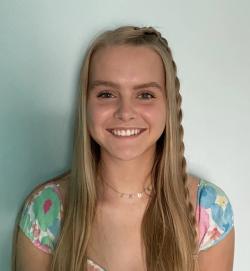
Jade Archer
Post Graduate ResearcherSince 2021, I have been lucky to work across many different projects in DDLab. My undergraduate and master's dissertations explored links between different memory processes and early word learning and vocabulary. I am now completing my PhD studies under the supervision of Prof Teodora Gliga and Prof Larissa Samuelson. My project explores links between category learning and language development during early childhood. There are many ways in which babies can learn object categories such as “cars”, “dogs”, and “balls”. For example, they may look at different cars and notice what they have in common, or a caregiver can point out how those cars are similar. Alternatively, a caregiver could give them all the same name (such as 'car'). Our study will explore the relationship between this object naming and category knowledge by investigating whether there are links between the categories and words that 10- to 20-month-old children know.
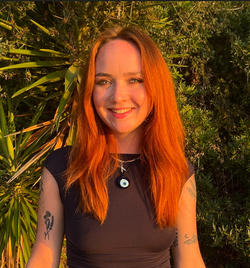
Brooke Graham
Post Graduate ResearcherMy PhD research explores how attention and executive function develop in infancy and early childhood. Under the supervision of Professor John Spencer, I use functional near-infrared spectroscopy (fNIRS) to study how visual working memory and attentional control emerge between 18 and 42 months, and how these processes differ in children at risk for ADHD.
I completed my BSc in Biomedicine and my MSc in Cognitive Neuroscience at the University of East Anglia, where I developed a strong interest for early brain development and neurodiversity. As someone with late-diagnosed ADHD, I’m driven to improve our understanding of its early neural foundations, supporting research that promotes earlier identification and intervention.

Ellie Johns
Post Graduate ResearcherMy PhD will be examining the precursors to executive function in early infancy. Executive function is a set of cognitive processes that enable people to plan, multitask, follow instructions, and focus attention. I will be focusing on examining visual working memory and attention control in infants from 6 months to 54months to better understand how executive function develops and factors that may influence this development. Poor executive function is associated with reduced academic achievement, particularly in English and Maths, so understanding how executive function develops can allow us to notice signs of poor executive function much earlier and to implement early interventions. To test this, infants take part in eye-tracking tasks whilst we monitor the blood flow around the brain to see which areas of the brain are activated.

Milena Bakopoulou
Post Graduate ResearcherCompleting both my undergraduate and master’s degree at the UEA and working in the Developmental Dynamics Lab sparked my interest in children’s research. My previous research focused on novel language learning while children are handling novel objects. I was very interested in continuing my research and taking this a step further. Therefore, I have started a PhD under the supervision of Professor Larissa Samuelson, researching children’s multiple memory processes and word learning. Working in the lab has enabled me to experience multiple approaches while collecting data for my research using eye trackers and cameras.

Nicky Bridgham
Project Participant AssistantI joined DDLab team in November 2019. My background is in education – I’m a qualified primary school teacher and have been teaching for 17 years, but recently retrained as a children’s counsellor and plan on combining my role at UEA with counselling in schools. My job title here is ‘data collection assistant’, which might sound a bit boring but it is far from it. I work part-time running sessions with children; so I meet and greet the families, talk them through the study and make sure they are totally happy with everything before, during and after the sessions. I get to meet so many lovely kids and it’s always interesting chatting to parents and seeing how the sessions run. Many of the studies I run involves the eye tracker which is fascinating – we get to see exactly where the child is looking while they watch the programs which have been specifically devised to investigate how children learn new words. I love working here.
